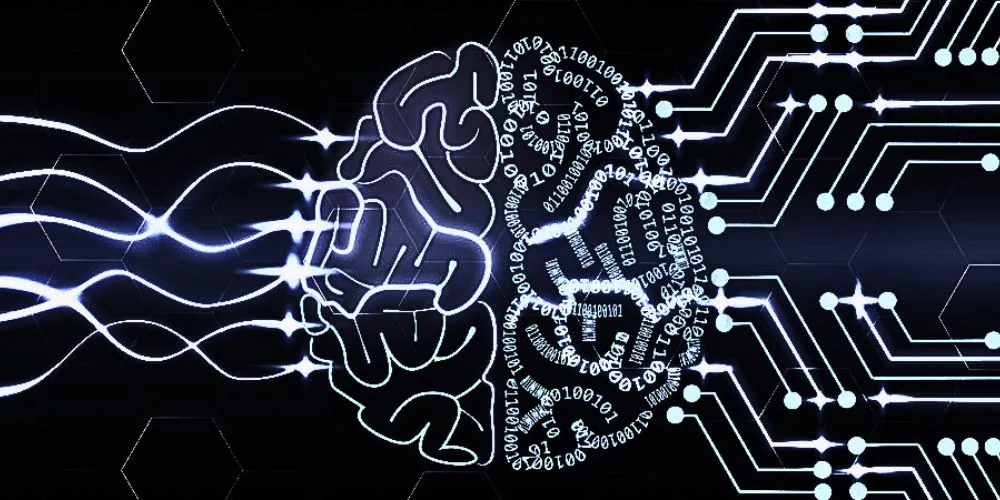Cognitive AI represents a cutting-edge approach to artificial intelligence that draws inspiration from human cognition to create systems capable of reasoning, learning, and adapting in dynamic environments. This in-depth exploration delves into the nuances of Cognitive AI, elucidating its fundamental principles, innovative methodologies, practical applications, and the transformative impact it holds for various industries and domains.
Understanding Cognitive AI
Cognitive AI goes beyond traditional AI approaches by emulating the human brain’s cognitive processes, such as perception, reasoning, and problem-solving. By incorporating cognitive psychology, neuroscience, and computer science principles, it aims to develop systems that exhibit human-like intelligence and adaptability.
Emulating Human Cognition
Cognitive AI systems mimic human cognitive processes, including perception, attention, memory, and decision-making, to achieve intelligent behavior in diverse tasks and environments. By modeling these cognitive functions, it can understand complex information, make context-aware decisions, and learn from experience.
Integrating Multimodal Data
Cognitive AI leverages multimodal data sources, such as text, images, and sensor data, to capture the richness and complexity of human perception. Integrating information from multiple modalities allows it to analyze and interpret data holistically, enabling a more nuanced understanding and interaction with the environment.
Dynamic Learning and Adaptation
Cognitive AI emphasizes dynamic learning and adaptation, allowing systems to continuously update their knowledge and behavior based on feedback and changing circumstances. Through iterative learning processes, it can improve performance, refine models, and adapt to new tasks or domains over time.
Methodologies in Cognitive AI
Cognitive AI employs a variety of methodologies and techniques to emulate human cognition and achieve intelligent behavior in artificial systems.
Neural Networks and Deep Learning
Neural networks, particularly deep learning architectures, play a central role in Cognitive AI, enabling systems to process complex data, extract meaningful features, and learn hierarchical representations. By simulating the interconnected neurons in the human brain, deep learning models can achieve remarkable performance in tasks such as image recognition, natural language processing, and decision-making.
Symbolic Reasoning and Knowledge Representation
Symbolic reasoning and knowledge representation techniques enable Cognitive AI systems to manipulate symbols and logical rules to solve problems and infer new knowledge. By encoding domain-specific knowledge and rules, it can perform deductive reasoning, infer causal relationships, and generate explanations for its decisions and actions.
Probabilistic Models and Bayesian Inference
Probabilistic models and Bayesian inference methods allow Cognitive AI systems to reason under uncertainty and make decisions based on probabilistic evidence. Incorporating probabilistic reasoning into their models can account for uncertainty in data, handle incomplete or noisy information, and make more robust decisions in complex environments.
Applications of Cognitive AI
Cognitive AI has diverse applications across various industries and domains, enabling intelligent systems and enhancing human-machine interaction.
Personalized Recommendations and Content Filtering
Cognitive AI powers recommendation systems and content-filtering algorithms that deliver personalized user experiences based on their preferences, behavior, and context. By analyzing user data and learning individual preferences, it can recommend products, services, and content that align with users’ interests, increasing engagement and satisfaction.
Intelligent Assistants and Chatbots
Cognitive AI drives the development of intelligent assistants and chatbots that provide conversational interfaces for interacting with users. By understanding natural language, interpreting user queries, and generating contextually relevant responses, it can assist users with tasks, answer questions, and provide personalized recommendations in real time.
Autonomous Vehicles and Robotics
It enables the autonomy and intelligence of vehicles and robots by enabling perception, decision-making, and navigation in complex and dynamic environments. By integrating sensor data, processing visual and spatial information, and making real-time decisions, autonomous systems can drive vehicles, guide robotic systems, and perform tasks in unstructured environments with precision and efficiency.
Future Directions of Cognitive AI
As Cognitive AI advances, new opportunities and challenges emerge, shaping the future of intelligent systems and human-machine collaboration.
Explainable AI and Transparent Decision-Making
Explainable AI research aims to develop methods and techniques for making AI systems more transparent and interpretable, enabling users to understand and trust the decisions made by intelligent systems. It enhances transparency, accountability, and trust in AI-driven applications across various domains by providing explanations and insights into AI systems’ reasoning processes.
Lifelong Learning and Continual Adaptation
Lifelong learning and continual adaptation are key research directions in Cognitive AI, which focus on developing systems that can learn and acquire new knowledge throughout their lifespan. By enabling systems to learn from diverse data sources, adapt to changing environments, and acquire new skills over time, cognitive AI can create intelligent systems that continually improve and evolve with experience.
Human-Centered AI Design and Ethical Considerations
Human-centered AI design emphasizes the importance of designing AI systems prioritizing human values, preferences, and well-being. Incorporating ethical considerations, user feedback, and societal values into the design process can create intelligent systems that enhance human capabilities, empower users, and foster trust and collaboration between humans and machines.
Conclusion
Cognitive AI represents a paradigm shift in artificial intelligence, aiming to create intelligent systems that emulate human cognition and behavior. Drawing inspiration from cognitive science, neuroscience, and computer science can revolutionize various industries and domains, enabling intelligent systems that understand, learn, and adapt to complex and dynamic environments. As it continues to evolve, it is essential to consider ethical considerations, transparency, and human-centered design principles to ensure that intelligent systems serve humanity’s needs and values while advancing the frontiers of AI research and technology.





